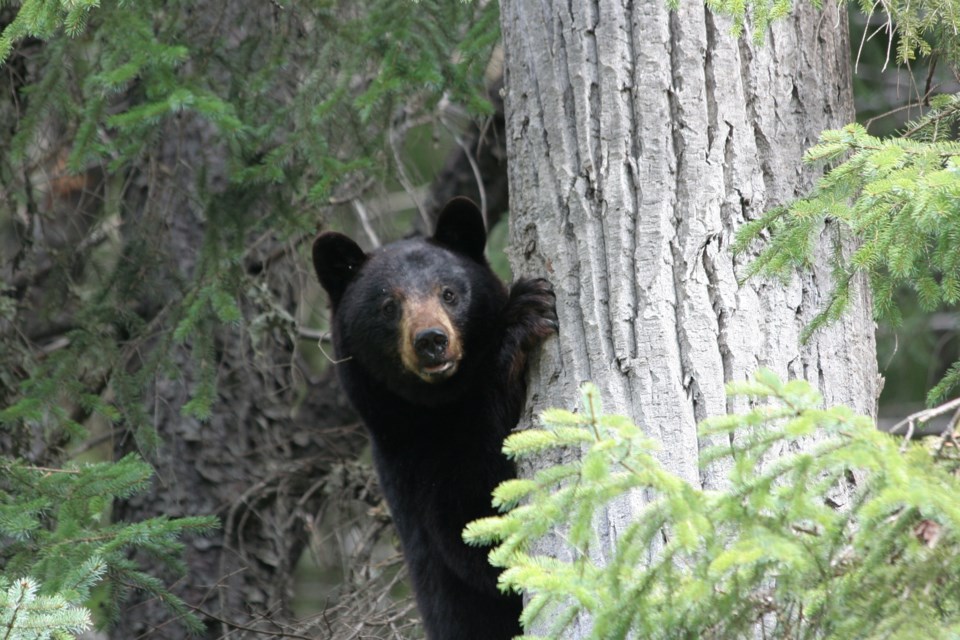The Resort Municipality of Whistler (RMOW) issued a wildlife alert this week after hearing a report of a black bear bluff charging in Alpine Meadows.
In an Instagram story posted Tuesday, April 11, the RMOW said Sea to Sky conservation officers were recently informed about a bear bluff charging an individual in the residential neighbourhood. The bear did not make contact with the person, according to the reports.
Black bears are known to be fairly tolerant of humans, but may bluff charge on occasion as an intimidation tactic.
There are three common types of bluffs, according to Get Bear Smart's educational resources. "[A]ll include sudden, explosive blowing with clacking teeth – the defensive display of a fearful or surprised bear," the website reads. "Another display is blowing with a short lunge and slapping the ground or an object – an uneasy black bear’s way of saying 'Move Away.'
"A more emphatic version is blowing and bluff-charging," which can occur when a bear feels crowded but doesn't want to leave its cub or food source. As Get Bear Smart explains, "displays usually end with bears turning and retreating, perhaps to repeat the performance, perhaps not. Research has shown that such displays by black bears are not preludes to attacks and that aggressive behaviour by people (yelling, waving arms, making short rushes, throwing things to scare the black bear) is almost certain to put a bluffing black bear in retreat."
As snow continues to melt and temperatures keep rising, locals and visitors can expect to start seeing more bears meandering around the valley in the coming weeks and months.
"Whistler's bears are waking up!" the RMOW's alert read. "Protect yourself and the bears by securing attractants, keeping BBQs clean and removing bird feeders."
Sea to Sky conservation officer Brittany Mueller told Pique in February that the COS was recording an unusually high number of black bear sightings over the winter. “In coastal areas that are quite temperate, it's normal to have bears coming in and out of hibernation, but for Whistler, I would say this is definitely an abnormal year,” she said at the time.
The RMOW encourages locals to report bear sightings to the BC Conservation Officer Service (COS) Report All Poachers and Polluters's (RAPP) phone line at 1-877-952-7277.




